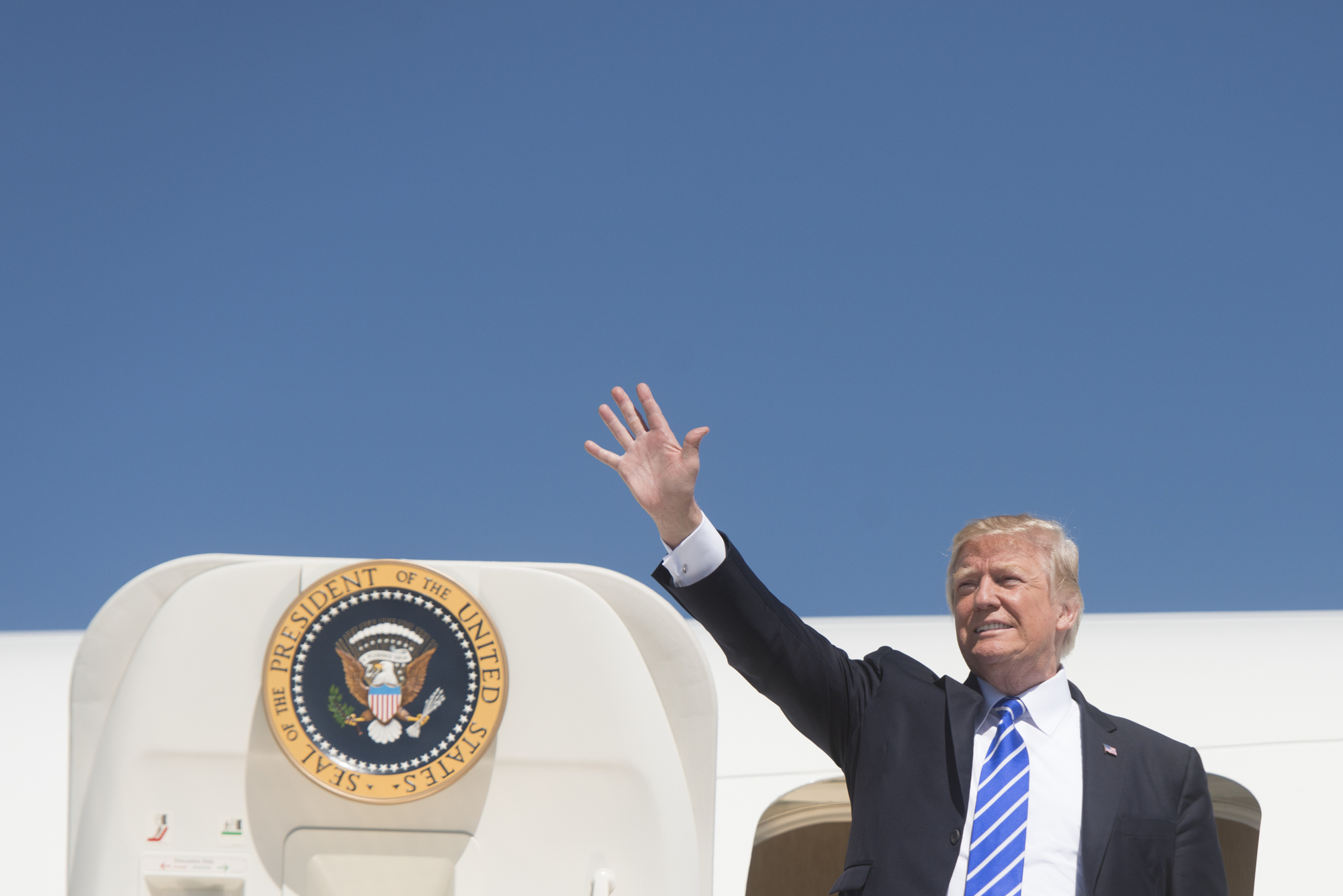If you wanted to discover the secret sauce or X factor that makes Donald Trump the irrepressible figure in American culture that he is, where would you look?
Some would march straight to 725 Fifth Avenue, the address of Donald Trump’s namesake tower. However, as impressive as Trump Tower may be, it is not the place where his secret seasoning was first formulated. For that, we would have to take a short walk down Fifth Avenue, past Rockefeller Center and the Empire State Building, to a stately old church with a steeple that points to the heavens.
Marble Collegiate Church has seen many faces in its pews since its founding in 1628, but few people appreciate that among this number was a young Donald J. Trump. Fred Trump brought his family to church there every Sunday in large part because the preacher was Norman Vincent Peale.
Trump has frequently cited Peale’s influence in his life. At the 2016 Iowa Family Leadership Summit, Trump reminisced, “I still remember [Peale’s] sermons. You could listen to him all day long. And when you left the church, you were disappointed it was over. He was the greatest guy.”

Peale is widely known as the originator of the modern self-help genre, but first and foremost Peale was an authentic Christian voice. The pages of his best-known work, The Power of Positive Thinking, are filled with refer- ences to Scripture. In it, Peale begins by laying out ten rules for “overcoming inadequacy attitudes and learning to practice faith.”
Oneofhisrulesistokeepinmindthe line from Romans 8:31: “If God is for us, who can be against us?” Another rule is to memorize and regularly recall the famous verse, “I can do all things through Christ who strengthens me” from Philippians 4:13.
Donald Trump doesn’t just give lip service to his time with Norman Vincent Peale’s sermons. In many ways, Trump is the embodiment of his teachings. Peale calls his readers to acknowledge God’s power and refuse to allow earthly setbacks to define their limits. Who in politics today has more steadfastly refused to accept the limitations others have placed on him than Donald Trump?
Those who do not understand the recipe for Trump’s secret sauce will write this off as arrogance and pride, but it is the arrogance of these same critics that scorned the idea of a Pres- ident Trump from the moment he descended that escalator in Trump Tower in 2015. Their pride blinds them to Trump’s influence, not the other way around.
The words of Theodore Roosevelt’s famous “Man in the Arena” remarks could have just as easily been said about Trump’s critics in observing, “There is no more unhealthy being, no man less worthy of respect, than he who either really holds, or feigns to hold, an attitude of sneering disbelief toward all that is great and lofty.”
Meanwhile, Donald Trump continues steadfastly in the Christian ethic that his pastor taught him. He counts setbacks as temporary obstacles on the road to greatness. He refuses to be knocked down. He pictures himself succeeding and never lets that picture escape his mind. This posi- tive thinking is the source of Donald Trump’s winning advantage.
Trump’s success in large part comes from understanding a broad and full definition of charisma. In its purest form, charisma is power combined with genuine Christian empathy. When you have only power and human empathy, you have Bill Clinton. Clinton certainly has a form of charisma, but it is guided by a fake empathy rooted in humanism. If you have power and empathy based in the understanding that all people are created in the image and likeness of God, you have charisma that is as authentic as it is effective.
Donald Trump’s empathy is seen clearly in his total rejection of the identity politics that has completely overtaken the left and is slowly creep- ing into the right as well. Throughout his political career, Donald Trump has rejected the route of attacking entire groups of Americans. He treats his fellow citizens, even his enemies, as individuals.
Joe Biden has taken a much different route. When he besmirches “ultra MAGA” Americans as extremists, he is attacking a group. When the left snarls about pro-lifers, they are attacking a group. When social justice warriors shake their fists at “white fragility” or “toxic masculinity,” they are attacking groups.
At its core, intersectionality divides all people into the categories of “oppressed” and “oppressor,” often the intersectional worldview, they will always see rights and wrongs as collective actions, not individual ones. Donald Trump refuses to fall into that trap.
To be clear: if you mess with Trump or stand against American values, no one will retaliate more fiercely. Yet, no matter how great the struggle, Trump always points his wrath at individual targets.
Norman Vincent Peale may be gone, but his influence lives on in Donald Trump, a man whose devo- tion to positive thinking in the face of adversity cannot be shaken. His powerful charisma is guided by true Christian empathy and a focus on individual rather than collective merit. And Trump’s optimism for all to succeed and do better is an echo of Peale’s emphasis that, like Horatio Alger, we can all “pull ourselves up by our bootstraps.”
The mystery of Trump’s success is only a secret to those who refuse to listen to what he says and to watch what he does. From the very begin- ning, he has always been upfront about the power of positive thinking that permeates his thoughts and actions.
It all started just down Fifth Avenue at the church where Trump and his sisters would marry, and where both of his parents’ funerals were held. It’s the church where Donald Trump grew up, whose steeple still points to the heavens.
Ed Martin is a lawyer who succeeded iconic conservative leader Phyllis Schlafly as president of the Phyllis Schlafly Eagles, the pro-family organization with leaders in every state. He clerked for the federal court of appeals and has served as chief of staff to the governor of Missouri, chairman of the St. Louis Board of Elections, and in 1997, special assistant to Pope John Paul II.






